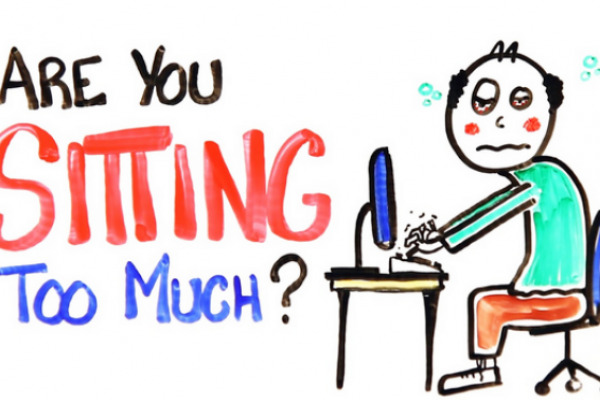Too Much Sitting Is As Bad For The Brain As It Is For The Body
If you didn’t quite believe that sitting is one of the worst things we can do for our health, a new study should clear any lingering doubt.
If you didn’t quite believe that sitting is one of the worst things we can do for our health, a new study should clear any lingering doubt. It finds that sitting isn’t just a physical health risk—it’s a neurological risk as well. The UCLA study reports that people who are more sedentary have thinning in brain regions linked to memory—and even high-levels of exercise don't seem to undo the effects of sitting too much.
The team looked at the connections between sitting, exercise, and the thickness of his or her medial temporal lobe, which is involved in memory formation, as well as its subregions. Participants, aged 45 to 75, answered questions about how much they'd sat on average over the past week and how much exercise they got at low, medium, and high intensities. Some physical measures were taken, and they were all tested for the “Alzheimer’s gene” variants (APOE). Finally, their brains were scanned with MRI to measure the thickness of regions in the medial temporal lobe.
As mentioned, time spent sitting was significantly correlated with less thickness in the medial temporal lobe, and certain areas within it, including the entorhinal cortex, the parahippocampal cortex, and the subiculum. Interestingly, exercise was not correlated with thickness in these regions, suggesting that exercise can’t undo the damage that excessive sitting brings. There wasn't a link between APOE status and thickness in the regions of interest.
The study is important for a couple of reasons. One is that sedentary behavior is known to be a predictor of Alzheimer’s risk. In fact, the team points out that earlier studies have calculated that about 13% of Alzheimer’s cases may be due to inactivity, and that even a 25% reduction in sedentary behavior would reduce Alzheimer’s prevalence by about one million cases across the globe. Earlier studies have also hinted that more time spent sitting may be linked to worse cognitive performance, which could be a symptom of existing changes to the brain itself. So the new study nicely lays out the neurological changes that may explain these connections.
It also suggests that reducing the amount of sitting that people do may be a more effective intervention than adding exercise alone. Why does sitting affect brain health in this way? There's a number of potential mechanisms, including a reduction in the birth of new neurons, reduced plasticity, and increased inflammation. All of these variables are known to be enhanced with exercise, so it’s interesting that even exercise, at least in this study, didn’t reverse the effects of sitting.
forbes.com





Related Posts